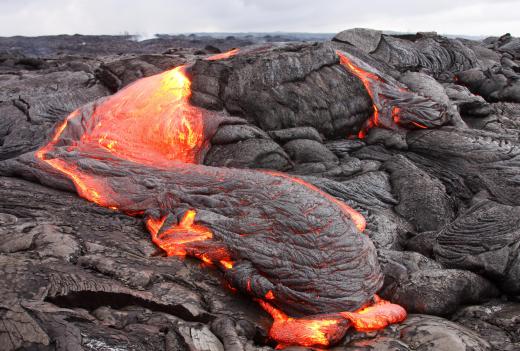What is Rheology?
Rheology is the study of the flow of matter. It is classified as a physics discipline and focuses on substances that do not maintain a constant viscosity or state of flow. That can involve liquids, soft solids and solids that are under conditions that cause them to flow. This includes substances that tend to be very complex, including bodily fluids, sludge and suspensions.
Coined in 1920, the term “rheology” takes its name from the Greek words “rei,” meaning flow, and “ology,” meaning study. The study is also called “Non-Newtonian fluid mechanics” because it was English physicist Isaac Newton that originated the concept of viscosity. Rheology studies those substances that don’t follow the rules of viscosity.

Take, for example, a jar of peanut butter. When the jar is opened, the top surface of the peanut butter retains the shape that was left by the last person who used it. It can do so for months or even longer. Peanut butter--like mayonnaise, paint or molten plastics--doesn’t follow Newton’s laws of viscosity and therefore is classified by rheology standards for unusual flow.

Since there is no general discipline in rheology, to become a rheologist, a scientist must first have a degree in a related field such as physics, engineering or mathematics. The truth is that very little of his knowledge of the discipline will be learned during his undergraduate training. It is in the scientist’s postgraduate research that he will receive the bulk of his training in concepts related to the flow of matter.
A rheologist can work in many fields, including pharmaceutics and engineering. For example, some scientists work in the field of biorheology, a study of the flow of biological fluids. Another specialty is hermorhelogy or the study of blood flow. In the field of geophysics, a rheologist might study the flow patterns of lava.
In 1929, there was an increased demand for scientists who had studied rheology. There were several newly discovered synthetic rubbers and polymers, creating a demand for knowledge about their flow properties. The Society of Rheology (SOR) formed was formed that year. The SOR later became one of the founding member societies of the American Institute of Physics. In a nod to the origin of the study, the organization’s motto is a famous quotation from the Greek philosopher Simplicius. Its motto is panta rei which translates to “everything flows.” It currently hosts 1800 members and publishes the Journal of Rheology six times a year.
AS FEATURED ON:
AS FEATURED ON:












Discussion Comments
I wonder if the rheologists were able to do any studies about how fluids behave in zero gravity when the space shuttle was still going up.
I suppose they could still be doing it through the international space station.
Flowing drops of water or other liquids is one of the most iconic images of astronauts.
I think it would be really interesting to study the rheological properties of fluids in that state and could also be useful one day.
There are all kinds of theories about how diseases and things could be treated better in sub-gravity, and studying the movement of fluids in those conditions could help that.
I imagine a person who studies the flow of blood would be very useful on certain kinds of crime scene.
In fact it must be similar to the blood works analysis that happens on the crime show "Dexter" as well as other forensics TV shows.
If you understand the way and speed in which blood moves you'd be able to map out where it came from and possibly at what time the crime happened.
It would be a creepy job to have maybe, but if you enjoyed mathematics it could be quite fascinating.
Post your comments